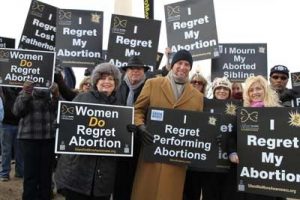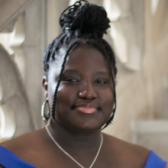Centuries ago, I was considered property. In 2018, I am still objectified for the agendas and desires of others, but at least I am generally considered a person. This observation is unfortunate, yet still a frustrating reality.
I have dedicated much of my blogs, journals, and reflections to discussing my frustrations with my position in the world around me. As the summer has progressed, I realized that my anger is more than just a surface level reaction to everyday grievances and mistreatment because it has become embodied within the essence of who I am and how I move about the world. My anger is an ongoing discontent with having to conform and comply to the assumptions, expectations, and standards of persons outside of my lived experiences because of my identity labels; it is also an emotional frustration with people universalizing their unique perspectives and experiences to an entire population, i.e. I regret having an abortion and will never have one again.Therefore, no woman should be able to have an abortion because all women will regret it.


My anger manifests when people’s ideas about who I should be restrict who I can be and how I get to be. In my most frustrating experiences, people have refused to accept who I want to be, and blamed me for their traumatic transgressions against me. By doing so, people have diminished the true weight I carry as black queer woman in this society. Many people I have encountered would rather get upset about having to adjust their behaviors and actions to recognize and respect my humanity than get upset about the injustice that myself and other marginalized minorities experience daily; this pattern of behavior often prompts “movements” like #NotAllMen and #AllLivesMatter that take valuable space in conversation about Women’s Rights and police brutality.

When privileged people take up valuable space in conversations regarding social justice, women of color experience multiple avenues of marginalization due intersectional oppressions. In an article we read last week for seminar called “Mapping the Margins”, Kimberlé Crenshaw coins the term intersectionality to describe how race, gender, class and other identities interact to shape multiple dimensions of a person’s experience. Women of color often reflect on feelings of craziness before becoming consciousness of sexual politics and patriarchal rule because they are expected to identify themselves as either “woman’ or a “person of color”. Crenshaw argues that positioning of race against gender leaves women of color at an intersection where their stories aren’t heard nor are the women represented. Crenshaw analyzes that sexual oppression is just pervasive as class and race in lives of women of color. Her notable example was the history of rape of black women by white men for political repression; in this example, one can how see intersections of race, gender, and class shape the trauma and experiences of Black women. I agree with Crenshaw that feelings of craziness stem from women not having a voice or the freedom to exercise it in society.

By voice I mean the ability to use one’s innate potential and developed talents to determine, define, and declare things about themselves and how they see the world around them. Crenshaw emphasizes how women of color are obscured and potentially jeopardized by political strategies of movements that require them to split their political energies between at least two subordinate groups with often conflicting political agendas, i.e. Black rights vs. Women’s Rights, so what little voice they do have is diminished.
The Combahee River Collective Manifesto (another reading from seminar last week) offers a different but related outlook on identity politics. They argue that identity politics is a political dedication to fighting to end your own oppression instead of someone else’s. Women of the Collective reject pedestals that tokenize them, queenhood where their person’s are fetishized under the guise of power, and walking ten paces behind to support someone else’s movement. They simply wish to be treated as levelly human.

In contrast to the Crenshaw’s and the Collective’ notion of identity, Wendy Brown (our final reading from seminar) argues that labels generated through oppression do very little to help groups achieve liberation beyond recognition. Brown is critical of the way people have to identify with pain and suffering to gain recognition from the government. I’m not sure I agree with this, as I believe that identifying with one’s pain is a method to gain empathy in the fight for justice.
Furthermore, returning to the idea of intersectionality, I argue that there are important social consequences to combining certain labels. For example, I am bisexual and Christian, so people commonly question how I reconcile my spirituality with my sexuality. I stress that these fundamental parts of my identity do not exist in opposition, but share space in my world. I have chosen to live in a world in which God loves all his children as I love him, all sins are equal in weight, and one should love thy neighbors rather than living in one where gay is “sin”, God hates me as I should hate my ‘lifestyle’, and I have to hide who I am. I chosen to love who I am in the face of God. To build a better intimate world for myself, I molded my Christianity into a private conversation between me and God instead of complying to the politics of the Church whereas my Bisexuality has transformed into a public conversation between me and the world.
In short, I defined my labels instead of letting them define me.

I identify as a black, bisexual, feminist, [Christian] woman in S.T.E.M.













